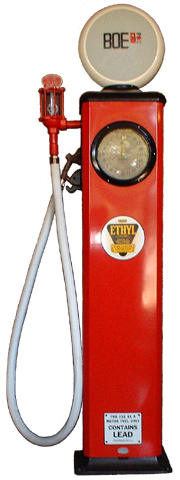The good and Providers Tax (GST) is all set to be rolled out from July 1 after the centre and the states arrive at a middle floor on the contentious surrounding sharing of administrative powers.
Till now, twenty one states and Union Territory Puducherry have handed the state GST Acts.

In 2011, the Congress-led UPA authorities launched the Invoice in the Lok Sabha and had set the rollout date for the new indirect tax regime as April 2012. By the way, BJP-ruled states, together with PM Modi Gujarat had pink flagged the reform. In the final two years, the opposition has by no means failed to mention this during GST negotiations.
As Congress claims credit over the country single biggest tax reform, allow us to have a look on the distinction between the 2011 GST Invoice and the current (2014) Invoice.
GST protection
The 2011 Invoice outlined GST as any tax on the availability of excellent and companies, aside from taxes on the availability of petroleum crude, excessive-pace diesel, motor spirit (petrol), natural gasoline, aviation turbine gas, and alcoholic liquor for human consumption.
 The 2014 Invoice has the identical definition for GST, nonetheless, it excludes the tax on supply of alcoholic liquor for human consumption. Additional, the Centre will impose an extra levy on tobacco.
The 2014 Invoice has the identical definition for GST, nonetheless, it excludes the tax on supply of alcoholic liquor for human consumption. Additional, the Centre will impose an extra levy on tobacco.
Provisions within the 2011 Invoice which have been deleted from the 2014 Invoice
Good and Services Tax Dispute Settlement Authority: The 2011 Bill provided for the creation of a very good and Services Tax Dispute Settlement Authority to arbitrate disputes between the central and state governments. However it was believed that this will negatively influence the tax system by affecting its harmonised construction and also cause lack of revenue. The 2014 Bill has deleted the availability for the creation of such a dispute settlement authority.
Restrictions on states within the taxation of particular items: In the earlier Bill, the Constitution had imposed restrictions on states within the taxation of goods that have been declared underneath regulation by the Parliament of particular significance in inter-state trade or commerce. This provision has been deleted from the present Bill.
Article 366: The 2011 Invoice had removed the goods listed under Article 366 (related to the sale or buy of goods) from its ambit. It further specified that this provision was not to apply to a state law which has already imposed GST. Both these provisions have been faraway from the 2014 Bill.
Entry tax of goods into a neighborhood area for use or sale solely to the extent levied by a Panchayat or Municipality: This was allowed in the 2011 Invoice, however has been deleted from the current Invoice. The GST Committee justified this transfer by saying that states have to be empowered to collect entry tax for distribution to native bodies instead of leaving the gathering power in the palms of various local our bodies.
GST Council: Functions underneath the 2011 Bill suggestions on taxes to be subsumed, exempted goods, threshold limits, charges. Decisions to be taken by consensus. Contrastingly, the functions of the 2014 GST Council, along with this, also includes mannequin GST legal guidelines, rules of levy and place of supply, and apportionment of IGST. For selections, Standing Committee suggestions will probably be included.
Additions made to the current GST Bill
Further Tax (in interstate commerce): Tax (as much as 1%) on the availability of products in interstate trade might be given to provide states, for 2 years or more. Nonetheless, the Congress calls for withdrawal of the 1% tax on manufacturing and offering for an impartial dispute redress mechanism.
Compensation to states: Parliament might present for compensation to states for a maximum of five years.
GST price: The BJP government has raised the cap on GST tax from UPA recommendation of 18% to 28%, dividing the tax payable into four 5%, 12%, 18% and 28%.
Four totally different GST bills: The Lok Sabha on April had accepted the 4 bills Cental GST Invoice, Built-in GST Invoice, Union Territories GST invoice, and Compensation legislation.
After the Congress government had launched the Structure (115th Modification ) Invoice, 2011 or GST Invoice, the Standing Committee had made numerous recommendations to it. However, in the long run, the occasion was unable to convert it right into a law despite the fact that it tried to increase the session by a few days to push the Invoice via the opposition.


